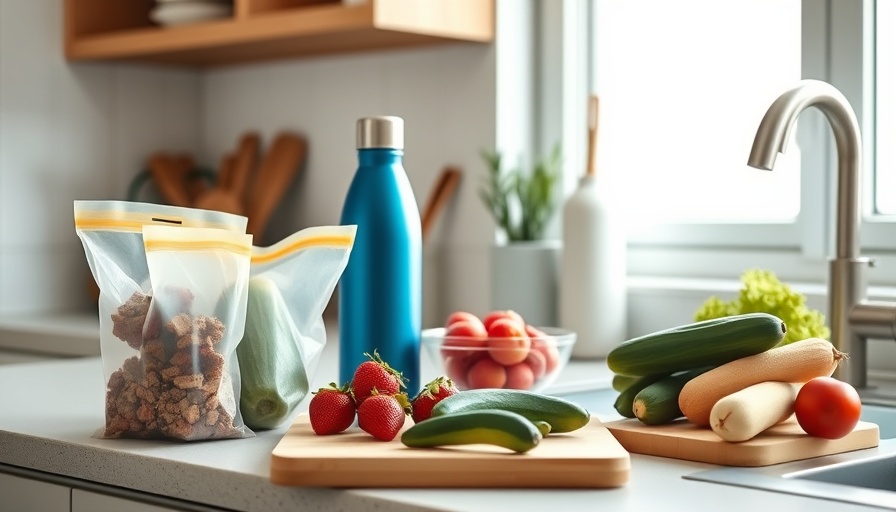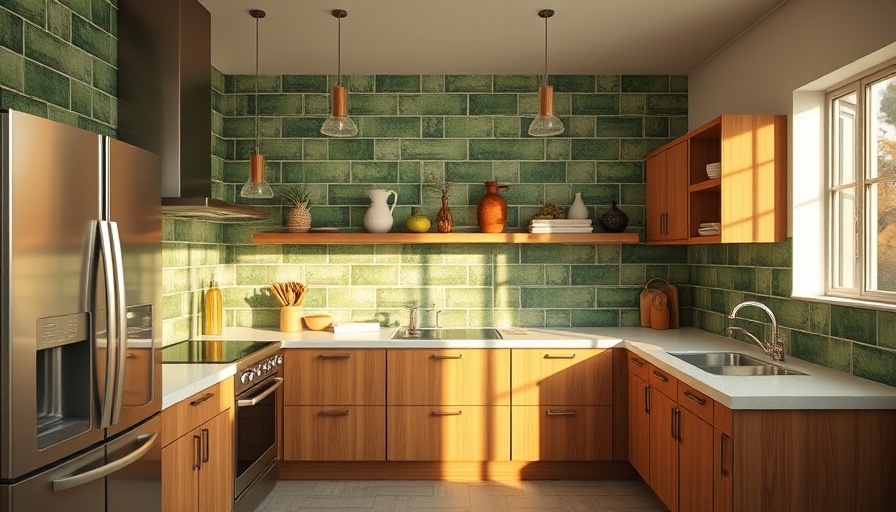
Embracing a Plastic-Free Kitchen: A Step Toward Sustainability
As more people become aware of environmental issues, creating a plastic-free kitchen leads the charge in sustainability and eco-living. For those of us in Metro Vancouver, where residing in smaller spaces is common, finding practical yet effective solutions can sometimes feel overwhelming. However, making sustainable choices does not have to come at a high price. In fact, there are numerous affordable alternatives that help reduce plastic waste while equally enhancing your kitchen experience.
Simple, Sustainable Swaps Under $20
Imagine swapping out your standard sponge for a compostable scrubber or using beeswax wraps instead of single-use plastic wraps. Not only do these swaps lower your environmental footprint, but they also promote healthier choices in food storage and preparation. For less than $20, consider the following alternatives:
- Silicone Food Storage Bags: These reusable bags can replace disposable sandwich bags, perfect for storing snacks or meal prep.
- Bamboo Utensils: Lightweight, durable, and stylish, bamboo utensils are a great replacement for plastic cutlery.
- Glass Storage Containers: Durable glass options can eliminate the need for plastic food containers, perfect for those limited storage spaces.
Why Sustainable Choices Matter
Making sustainable kitchen choices can have a lasting impact not just on immediate surroundings, but on the environment at large. According to various environmental studies, reducing plastic usage can significantly decrease waste that enters landfills and oceans, contributing to healthier ecosystems. This aligns with community goals in Metro Vancouver, especially among residents committed to preserving their natural surroundings.
Practical Insights for Small Spaces
Living in tighter quarters doesn’t have to prohibit the journey towards sustainability. Consider incorporating vertical storage solutions to house your eco-friendly kitchen tools. Wall-mounted racks for utensils or pots can free up counter space while keeping essentials within reach. Additionally, utilizing under-sink storage for reusable items instead of disposable ones maximizes space.
Expert Insights: The Long-Term Benefits
Experts agree that the benefits extend beyond sustainability—these swaps often cultivate a sense of community and wellness. Growing appreciation for home-cooked meals increases, and the health advantages of avoiding plastic-related chemicals are well documented. By engaging in this shift, Metro Vancouver residents can inspire one another and foster a culture that prioritizes ecological responsibility.
As you consider making your kitchen more sustainable, remember that small changes lead to significant impacts. Start by implementing one or two swaps and gradually expand your changes to create a more eco-friendly kitchen. Join the mindset that champions innovation and sustainability, ensuring the environment thrives for future generations.
Ready to kickstart your journey to a plastic-free kitchen? Explore local stores or online options to find sustainable products that fit your budget and lifestyle.
 Add Row
Add Row  Add
Add 




Write A Comment